This is an international event and the presentations will be held in English (with one exception only. Please refer to the Program for more information).
Interpreting services will be available only onsite in Dutch and French. Participants who register for interpreting services will receive a headset upon arrival.
9:15 – 10:00
Registration and welcome for onsite participants followed by opening remarks.
10:10 – 11:15
This session will feature a testimony from Alaa Mahdi Kudaih, a woman from Gaza, who will share her experiences with accessing mental healthcare as a migrant in Belgium, as well as a keynote presentation by Barbara Schouten titled “Mental Health 4 all: Digital solutions to bridge language barriers in accessing mental healthcare for third-country nationals”
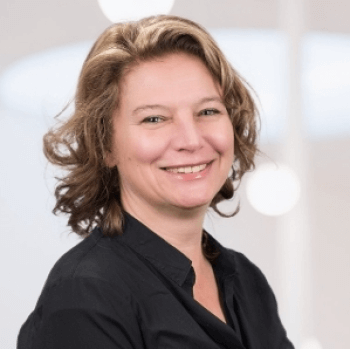
11:15 – 13:30
This session will feature flash presentations by various initiatives followed by a walking lunch and demo session of the MHealth4All platform. During the walking lunch, projects that presented pitches will have dedicated stands where they can interact with participants and provide additional information about their activities.
|
MentalHealth4All: Demonstrating a multilingual platform for migrants and (mental) healthcare providers across Europe by Liza van Lent (MHealth4All)
|
|
A leap into the future with Mind-Spring by Maryam Tawfiq Marwan (Mind-Spring)
|
|
Integration of qualified interpreters in outpatient (mental) health care services – Germany’s first model project by Mike Mösko (SEGEMI)
|
|
Therapist-interpreter collaboration for the benefit of the patient by Anne Delizée (UMons)
|
|
Empatia Program: Culturally Sensitive Mental Health Support for Displaced Ukrainians by Daria Delawar (Empatia)
|
|
Stichting Gezondheid Allochtonen Nederland by Mehmet Uygun N.B. This presentation will be held in Dutch. An interpreter will provide the English translation for all attendees (both onsite and online) |
13:30 – 14:40
This session will feature a roundtable discussion with experts and policymakers who will explore insights, challenges, and achievements related to the topics discussed during the day. For more details about the speakers, please visit the Speakers page.
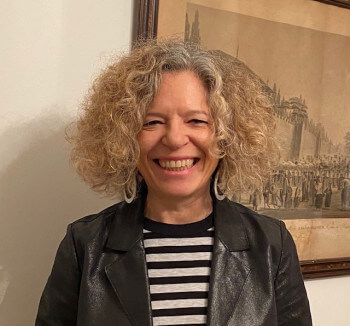
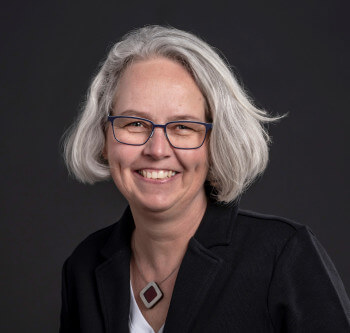
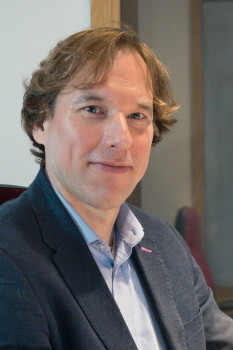
14:40 – 15:20
This session will feature a keynote address and closing remarks delivered by Dr. Winny Ang, titled “Navigating Diversity in Mental Health: Reflections from Practice, Research, and Education”
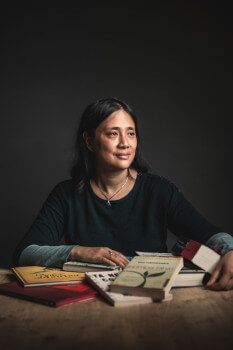
15:20 – 17:00
The reception will offer ample opportunities for meaningful networking. Furthermore, researchers from various academic institutions will have present their research on the theme through dedicated posters.
|
Christophe Declercq – Asylum: Refugees and Mental Health |
|
Sinem Bilican & Irfan – Exploring Linguistic Diversity in Unplanned Care |
|
Olivia Yuhui Chen – Evaluation of inclusive educational videos on mental health(care) by migrants in Europe: A MentalHealth4All think-aloud study |
|
Angeliki Tsoukaneli – MIND-CHAT: May I Help You? A Culturally Sensitive Chatbot for Depression and NSSI Prevention |
Keynote presentation by Barbara Schouten – Mental Health 4 all: Digital solutions to bridge language barriers in accessing mental healthcare for third-country nationals
According to the WHO (2020) one billion people worldwide suffer from mental health disorders. While there is evidence that prevalence rates for specific mental health disorders are higher for low language proficient third-country nationals, their access to mental healthcare services is oftentimes severely hindered. The Mental Health4all project aims to bridge these language barriers and enhance access to care by means of a multilingual culturally-sensitive digital platform. In this keynote, main findings of the project will be presented and implications for practice and policy discussed.
Liza van Lent – MentalHealth4All: Demonstrating a multilingual platform for migrants and (mental) healthcare providers across Europe
The MentalHealth4All platform is a multilingual, culturally-sensitive, information and communication platform about mental health(care). For its development, partners from nine European countries collaborated closely with mental healthcare providers and low-language proficient migrants. The platform aims to reduce the negative impact of linguistic and cultural barriers in accessing mental healthcare services for migrants. The current prototype, which is being evaluated in practice, will be demonstrated during the symposium.
Maryam Tawfiq Marwan – A leap into the future with Mind-Spring
Mind-Spring is a psycho-educational program for refugees, asylum seekers and migrants with the aim of increasing resilience to help cope with the future. The basic in this is own strength.
Mike Mösko – Integration of qualified interpreters in outpatient (mental) health care services – Germany’s first model project
Due to lack of political and legal support qualified interpreters are not really integrated into health care services, especially in outpatient services. A model project is trying to overcome this deficit. Since 2017 all 2.000 outpatient Mental health professionals and since 2021 all somatic doctors (3.700) in the state of Hamburg model can get a professional interpreter free of charge. The project is funded by the Hamburg social welfare authority and consist of fees for interpreting services, training, supervision, administration and public relations work. Currently 97 professional interpreters are providing services in 49 languages and 120 outpatient practices all over Hamburg are taking advantage of this service.
Anne Delizée – Therapist-interpreter collaboration for the benefit of the patient
In French-speaking Belgium, collaborative practices between therapists and interpreters have been developed over the last twenty years to improve patient care. In addition to their linguistic and symbolic contributions, interpreters may provide socio-cultural insights, help create a supportive climate conducive to the establishment of the therapeutic alliance, and participate in therapeutic reflection from their own field of expertise. This collaboration empowers both therapists and patients.
Daria Delawar – Empatia Program: Culturally Sensitive Mental Health Support for Displaced Ukrainians
As of 2024, around 108,000 displaced Ukrainians reside in the Netherlands. A 2022 needs assessment by the Opora Foundation identified gaps in their mental health support. In response, the Empatia Program was launched—an innovative initiative that connects Ukrainian professionals with those in need, improving access to culturally sensitive mental health care.
Mehmet Uygun – Stichting Gezondheid Allochtonen Nederland
De Stichting Gezondheid Allochtonen Nederland (SGAN) heeft zich de afgelopen jaren bewezen als belangrijke speler in het verbeteren van de geestelijke gezondheidszorg (GGZ) voor migranten in Nederland. Door cultuur-sensitieve voorlichting, vroegtijdige signalering en traumazorg voor vluchtelingen, biedt SGAN ondersteuning aan migranten en versterkt het de samenwerking met zorginstellingen. SGAN heeft bijgedragen aan het ontwikkelen van behandelmethoden die aansluiten bij culturele achtergronden en biedt nazorg via gemeenschapsnetwerken. De stichting speelt een cruciale rol in het verbeteren van de GGZ-zorg voor deze kwetsbare groep door het versterken van samenwerking en kennisoverdracht.
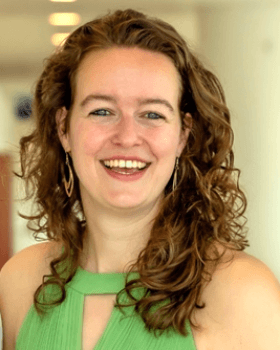


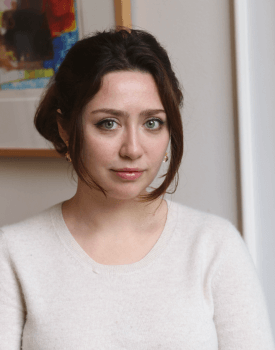
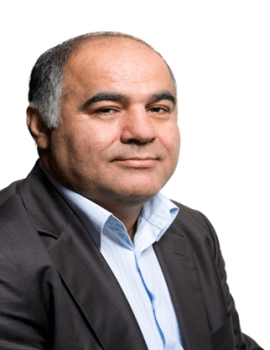
Keynote presentation and closing remarks by Winny Ang – Navigating Diversity in Mental Health: Reflections from Practice, Research, and Education
This presentation will explore the impact of diversity on the field of mental health, focusing on understanding and addressing the various cultural, social, and individual factors that influence mental health experiences and treatment. It will examine the barriers and potential pathways to improving the mental health of migrants and refugees.

Christophe Declercq – Asylum: Refugees and Mental Health
The AHRC-funded project Asylum: Refugees and Mental Health reveals the often-overlooked mental health impacts on refugees, focusing on Belgian refugees in Britain during World War I. By examining British medical records and asylums, the project highlights experiences of displacement, arrival, and the stigmas faced by these refugees. This interdisciplinary study bridges refugee studies, humanitarianism, and mental health, framing refugee wellbeing as a public mental health issue. Research is conducted through the University of Huddersfield and the University of Utrecht, with key partners including the London Metropolitan Archives, Alexandra Palace, the Mental Health Museum, and In Flanders Fields Museum, aiming to foster empathetic public engagement with contemporary vulnerable groups. The team—Rob Ellis, Rebecca Gill, Christophe Declercq, Ute Oswald, and Jozefien De Bock—combines expertise in history, humanitarianism, linguistics, and migration.
Sinem Bilican & Irfan – Exploring Linguistic Diversity in Unplanned Care
Language barriers (LBs) negatively impact clinical outcomes and care quality, especially in unplanned care, a context often consisting of first time encounters between patient and healthcare professionals. Consequences include diagnostic insecurity, increased tests and costs, more follow-up appointments, reduced patient satisfaction, and psychological stress for both patients and healthcare professionals. While professional interpreters are recommended, they are seldom used due to (perceived) practical barriers like time constraints, uncertainty about the patient’s language proficiency, and financial issues. Instead, patients and healthcare professionals often rely on companions, translation technologies, or non-professional interpreters, risking miscommunication and ethical concerns. MaLBUC is a multi-site linguistic ethnographic study exploring linguistic diversity in unplanned care. The project is a collaboration between the Research Group Interpreting Studies, the Academic Centre for General Practice and the Emergency Medicine Unit of KU Leuven. MaLBUC aims to create an environment where both patients (regardless of their background, health literacy level, and language skills) and healthcare professionals (including doctors, nurses, reception personnel, dispatch staff, etc.) can share their experiences.
Olivia Yuhui Chen – Evaluation of inclusive educational videos on mental health(care) by migrants in Europe: A MentalHealth4All think-aloud study
Migrants face higher risks of mental health issues, but encounter barriers to care, including language challenges, stigma, and system limitations. This study aimed to enhance access by developing culturally-tailored, multilingual educational videos through co-creation with migrants and healthcare providers. Eight videos were iteratively designed with feedback from the MentalHealth4all consortium and evaluated using think-aloud observations and interviews with migrants (N = 38) and providers (N = 33). Thematic analysis identified four key aspects regarding the effectiveness of the videos: comprehensibility, attractiveness, reliability, and relevance. These findings offer valuable insights for creating effective mental health resources for migrants.
Angeliki Tsoukaneli – MIND-CHAT: May I Help You? A Culturally Sensitive Chatbot for Depression and NSSI Prevention
This project develops MIND-CHAT, a culturally-sensitive and personalized chatbot aimed at addressing depression and non-suicidal self-injury (NSSI) in Dutch-Turkish and Dutch-Moroccan communities. These groups experience high rates of mental health challenges yet face barriers like stigma, low mental health literacy, and mistrust that prevent them from seeking help. Using complexity science and user-centered design, MIND-CHAT will among others promote mental health awareness, reduce stigma, and encourage professional help-seeking. Ultimately, the chatbot will aim to support symptom management and relapse prevention, offering an accessible, anonymous, and personalized tool to improve mental health outcomes in underserved urban communities.
